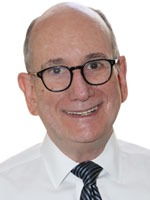The Art of Storytelling
Movies, mutinies, trial lawyers and CAALA Vegas
Everyone loves a good story, especially trial lawyers. But, they don’t just listen to stories, they tell them, too.
Lawyers have been telling stories for a long time, hundreds of years, in fact. Steven Spielberg’s movie Amistad is about a mutiny that took place in 1840 aboard the slave ship, Amistad, but it’s also a courtroom drama chronicling how lawyers for the slaves won their freedom.
The movie is based on a true story, and one of the characters in the film is John Quincy Adams. Before he became the sixth president of the United States, Adams was a trial lawyer with a solid legal career.
After his presidency, Adams joined in the case of United States v. The Amistad. Adams went before the Supreme Court to argue on behalf of the African slaves who had revolted and seized the Spanish ship. Adams appeared on February 24, 1841, and spoke for four hours. His argument succeeded; the Court ruled in favor of the Africans, who were declared free and returned to their homes.
In a memorable scene in the movie, Adams was asked for advice about how to conduct a trial.
Adams says, “When I was an attorney a long time ago, I realized after much trial and error, that in a courtroom, whoever tells the best story wins.” Adams said lawyers should tell the story of the client; not what they are, but who they are. I don’t know if Adams spoke the words that were in the movie, but the advice is still relevant for trial lawyers.
Today, lawyers still seek advice about how to develop storytelling skills, and numerous books on the subject are available.
Philip Meyer is Professor of Law at Vermont Law School and the author of the popular book “Storytelling for Lawyers.” Meyer writes “Make no mistake about it – lawyers are storytellers. It is how we make our livings. As professional storytellers we can do our jobs better the more consciously we deploy the tools of the storyteller’s craft. Simply put, in legal storytelling just as in literary and popular storytelling, it is important to find a way to tell stories in an order that will make the story most persuasive and effective.”
This column, however, is not about history, movies or mutinies; it’s about the annual CAALA Convention. So, you probably ask, “What does CAALA Vegas have to do with telling stories?” The answer is “Everything.”
CAALA’s annual convention has a well-deserved national reputation as the nation’s premier trial lawyer association gathering.
This year’s convention will be at the Wynn Las Vegas from Thursday, August 30 through Sunday, September 2. Attendees will earn 20 hours of MCLE credit including four hours of Ethics, one hour of Elimination of Bias and one hour of Competence Issues. Attendees will spend four days listening to nearly 130 attorneys, jurists and legal professionals teach trial advocacy, offer trial tips and strategies – and tell stories.
The lineup of speakers and topics was developed through the hard work of CAALA’s Deputy Director Cindy Cantu, Education Chair Elizabeth Hernandez, Co-Education Vice Chairs Martin Aarons and Taylor Rayfield and Convention Co-Chairs Mauro Fiore, Louanne Masry, Minh Nguyen, Rahul Ravipudi, Robert Simon and Twila White.
One of the highlights of the convention is the opportunity to meet and learn from sitting bench officers. For the first time, CAALA Vegas will begin with a one-of-a-kind plenary session presenting a roundtable discussion offering “Perspectives from the Bench” from L.A. Superior Court’s Presiding Judge Dan Buckley, Assistant Presiding Judge Kevin Brazile and Judges Lisa Hart Cole and Virginia Keeny. Orange County Superior Court Judge Thomas Delaney will also be on the panel.
Each CAALA Vegas presenter tells their own story, but no session will be more focused on the art of storytelling than the popular Master Speakers session on Saturday afternoon. The session is moderated by Education Chair Elizabeth Hernandez and the topic is “The Art of Storytelling.”
Attendees will hear five of the nation’s premier trial lawyers speak and provide hands-on demonstrations about how to “Effectively Communicate Your Client’s Story to the Jury to Obtain Better Results.”
Hernandez admits that part of her inspiration to make storytelling the topic of the Masters Session was the John Quincy Adams scene from Amistad.
The five presenters on the Masters Speaker panel are Deborah Chang (Panish Shea & Boyle/Los Angeles), Gary Dordick (Dordick Law Corporation/Los Angeles), Michael Kelly (Walkup, Melodia, Kelly & Schoenberger/San Francisco), Randi McGinn (McGinn, Carpenter, Montoya & Love/Albuquerque NM), and Pamela Pantages (Nurenberg Paris Heller & McCarthy/Cleveland OH). Each of the five is a highly regarded trial lawyer and a master storyteller.
Registration for CAALA Vegas is open to all attorneys, law firm staff, jurists and CAALA law student members. The registration fee includes all sessions, digital syllabus, continental breakfasts, coffee breaks, plus the Thursday and Saturday parties and Sunday breakfast session.
If you haven’t registered yet, visit www.caala.org or our dedicated convention web site, www.caalavegas.org. Online registration is open through Saturday, September 1. On-Site Registration Desk hours are Wednesday 12pm - 7pm, Thursday 8am - 6:30pm, Friday 8am - 5pm, Saturday 8am - 6pm.
Discounted registration is available for CAALA members, members of other Consumer Trial Lawyer Associations and members of Los Angeles Minority Bar Associations.
If you are already at CAALA Vegas, you’re probably taking advantage of everything that the convention has to offer, and you are now ready to tell your own stories.
Stuart Zanville

Stuart Zanville is the Executive Director of the Consumer Attorneys Association of Los Angeles (CAALA). Contact him at (213) 487-1212 or by e-mail: stuart@caala.org.
Copyright ©
2025
by the author.
For reprint permission, contact the publisher: Advocate Magazine
